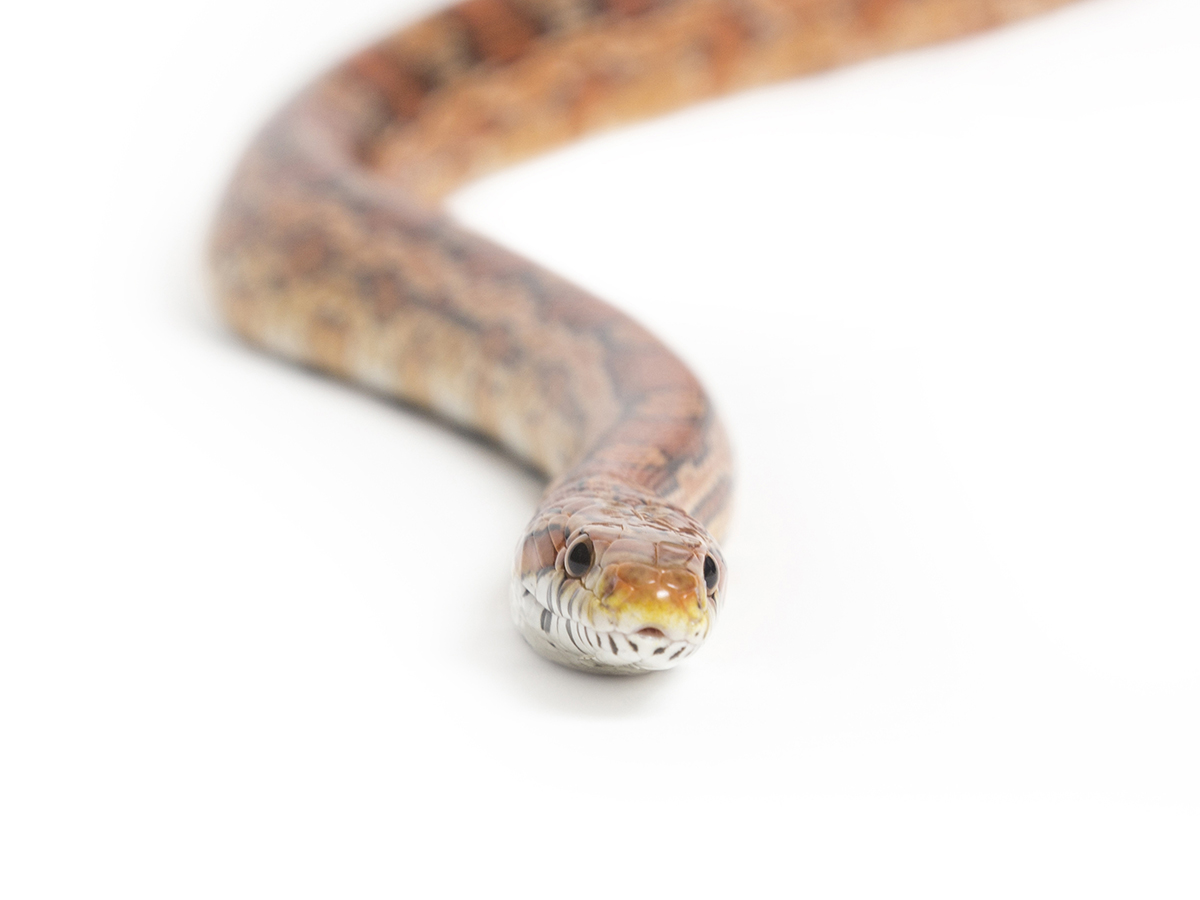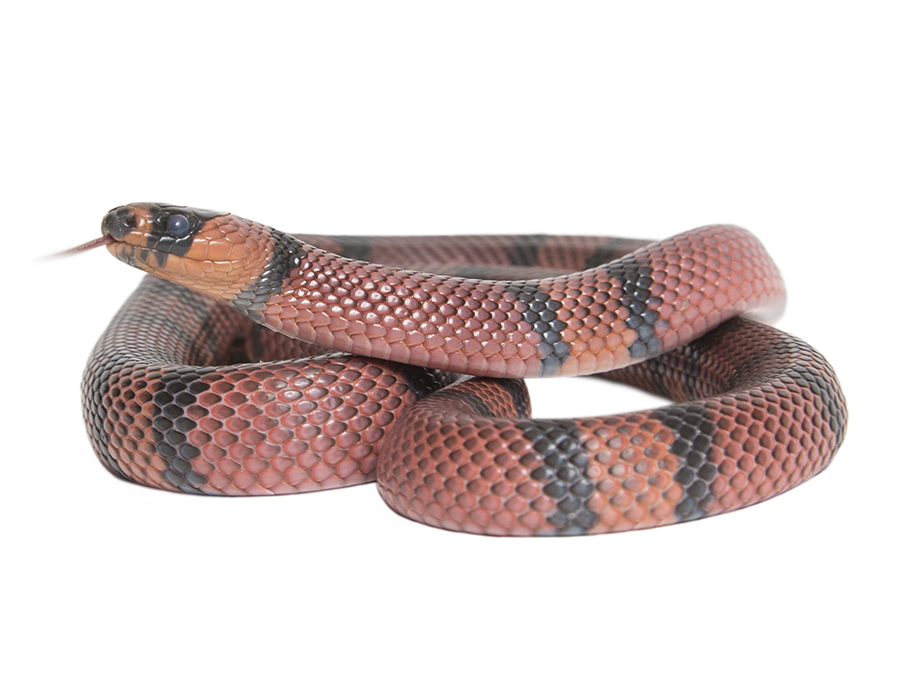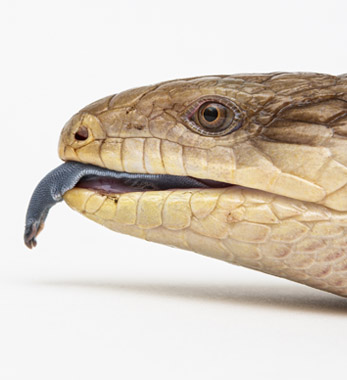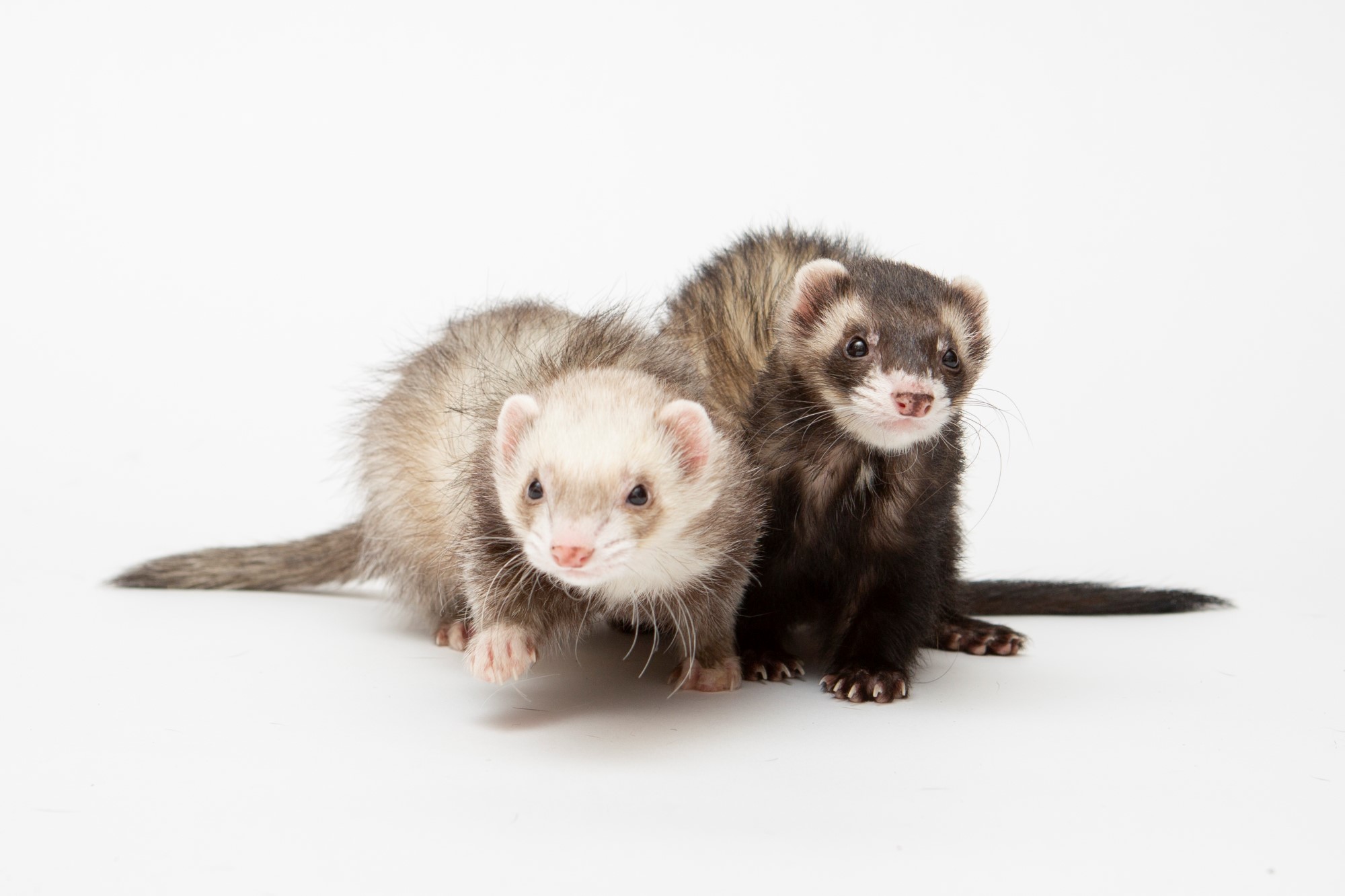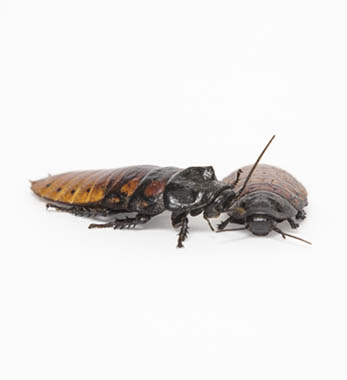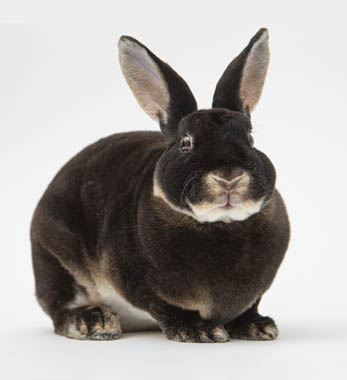Arizona Humane Society School Programs

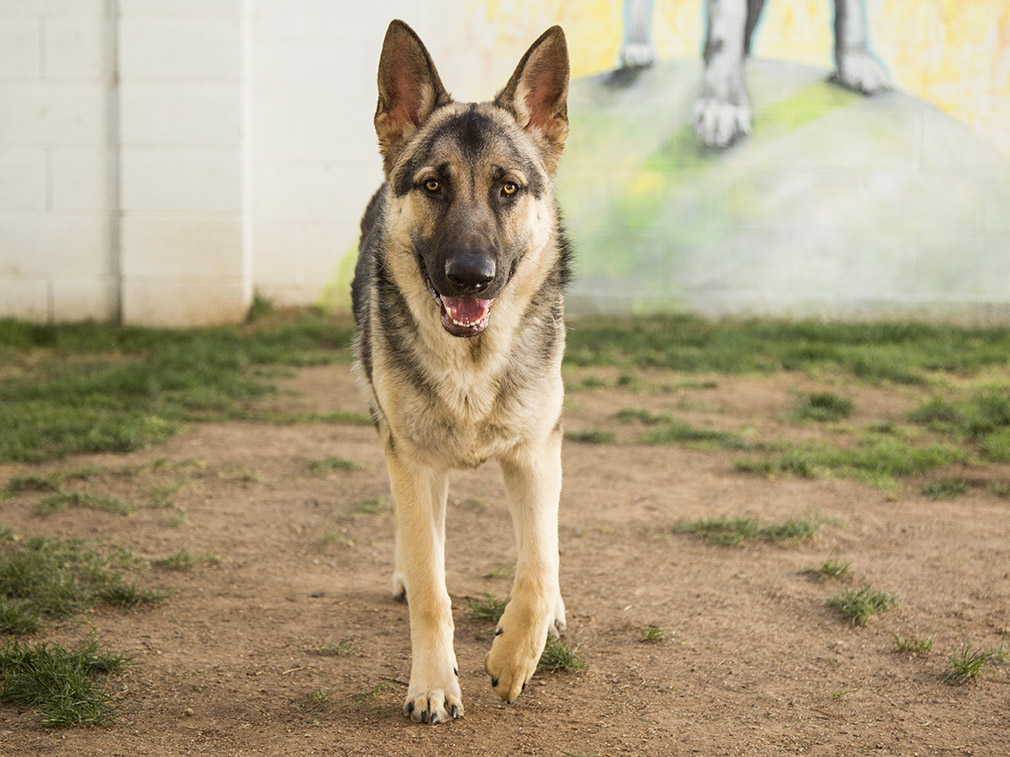
Add Tails & Scales to Your Curriculum
All of our Compassion in the Community programs provide age/grade-appropriate lessons that feature a wide range of STEAM-focused topics, hands-on learning and live animal interactions! AHS school programs meet AZ K–12 Academic Standards and can be customized to fit your current classroom topic or specific learning objectives.
Virtual programs are available upon request. For more information, please contact us.
Psst—Are you a student inquiring about a school or service project? Please fill out our online form, and we’ll get back to you within 48 hours. Requests must be submitted 10 working days prior to your project’s due date.
Our Most Popular Programs
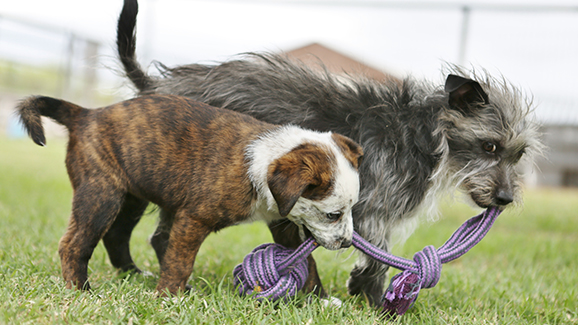
Pet Talk
Students will learn basic information about the many ways that animals (and people) communicate their needs and emotions. Understanding what an animal is saying increases empathy and respect and can also keep children safe. Students will use their observational skills to interpret our pet’s body language and vocalizations.

Classy Critters
Animals have class! Classification, that is. In this interactive classroom program, we’ll learn about the five different classes of vertebrates, amphibians, reptiles, fish, birds, and mammals and discuss what makes them different.
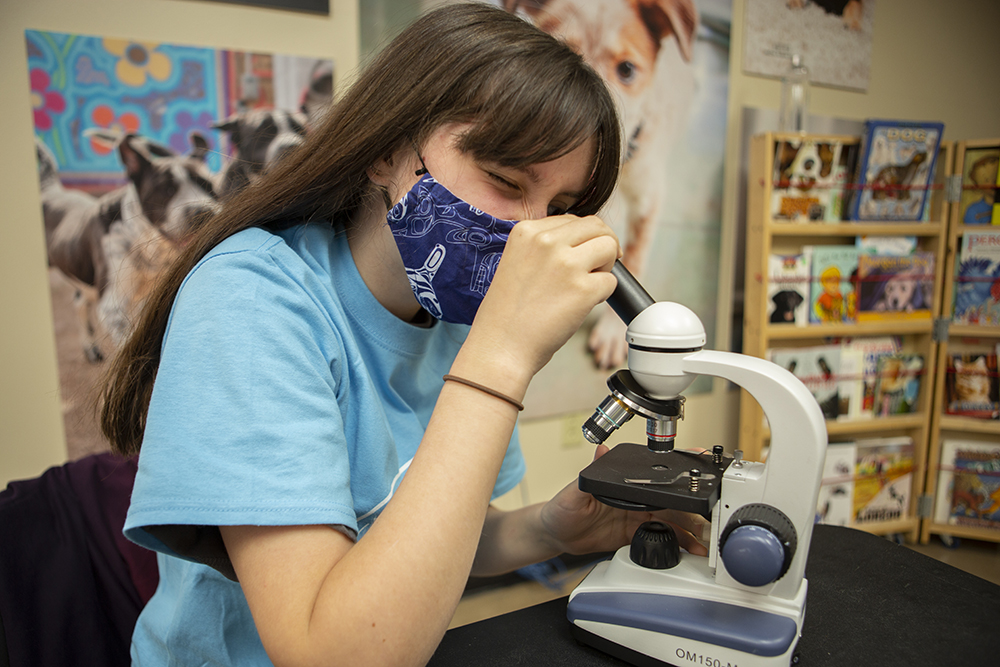
Animal Doctors
Let your students dive in, dig deeper, and explore the world of veterinary science. Students will compare animal vs. human doctors, listen to heartbeats with stethoscopes, explore the basics animal care and get to be an animal doctor for the day!
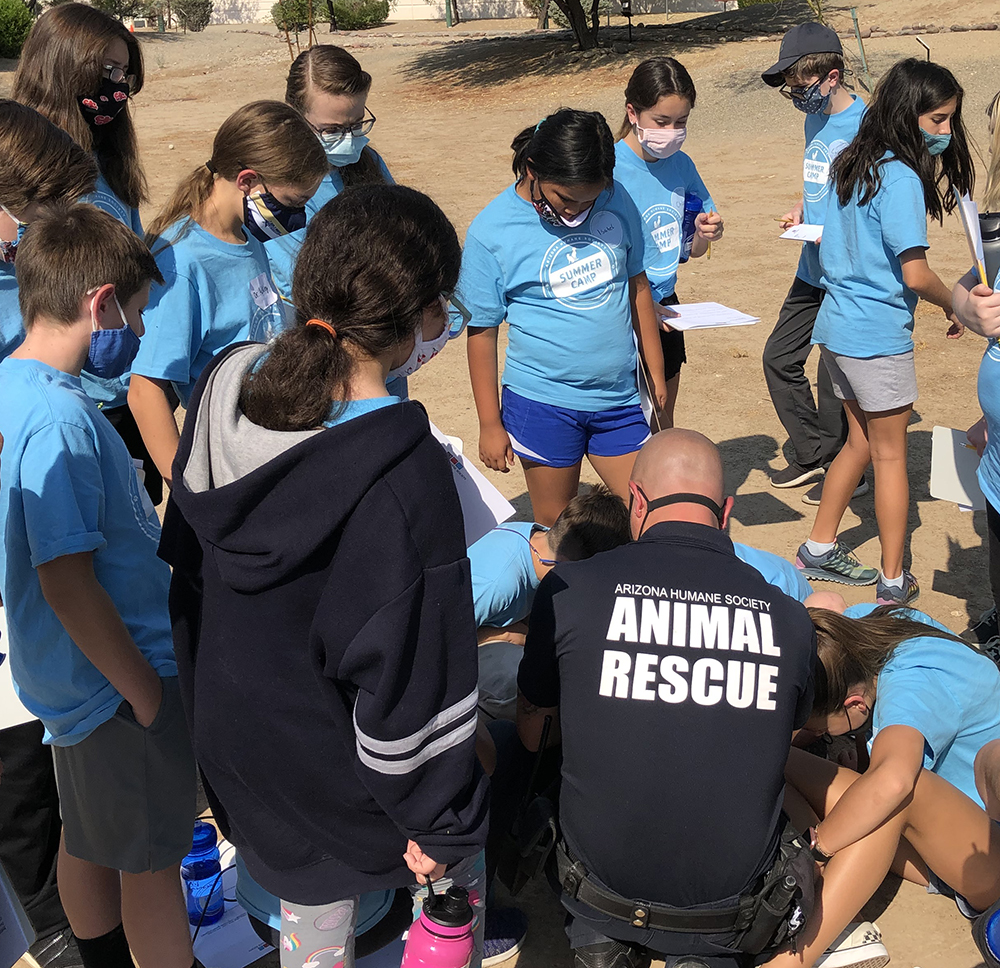
Animal Rescue Squad
Explore the world of AHS’ Emergency Animal Medical TechniciansTM! Students will hear stories of survival, meet some of our animal celebrities, and learn how they can make a difference for animals in our community.

Too Much of a Good Thing
A fun look into the issue of pet overpopulation. We’ll explore what might happen if pets weren’t spayed or neutered with hands-on math activities and open discussion about how personal choices can have a community-wide impact.
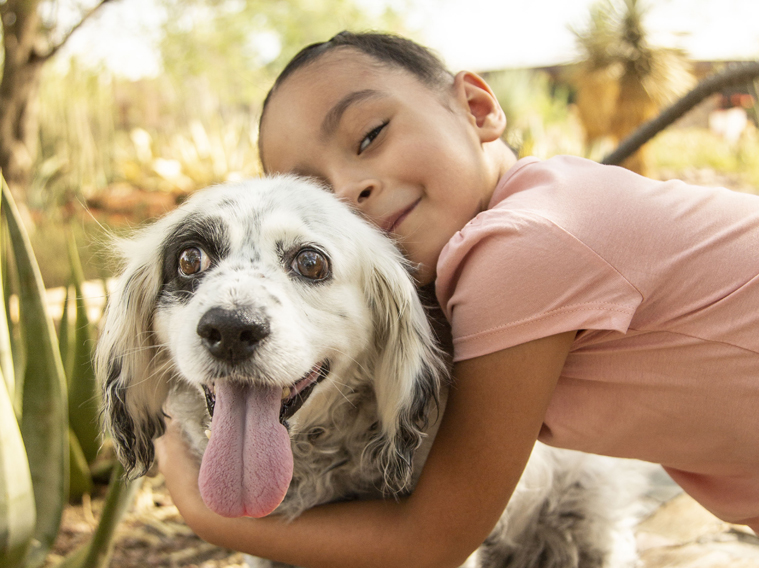
Animal Advocates 101
This program explores all aspects of the human-animal bond, cultivates compassion and encourages students to grow into responsible pet owners and advocate for the animals they love!
Book Your Program
- Pre-K and Kindergarten: $75.00 for a 30-minute program for up to 35 students.
- 1st-12th Grade: $195.00 for the first hour and $145.00 for each consecutive hour for up to 75 students.
- Any programs held outside of a 30 mile radius of our South Mountain Campus location will incur an additional fee of $3.00/mile.
- Programs are free to Title I schools in Maricopa County.
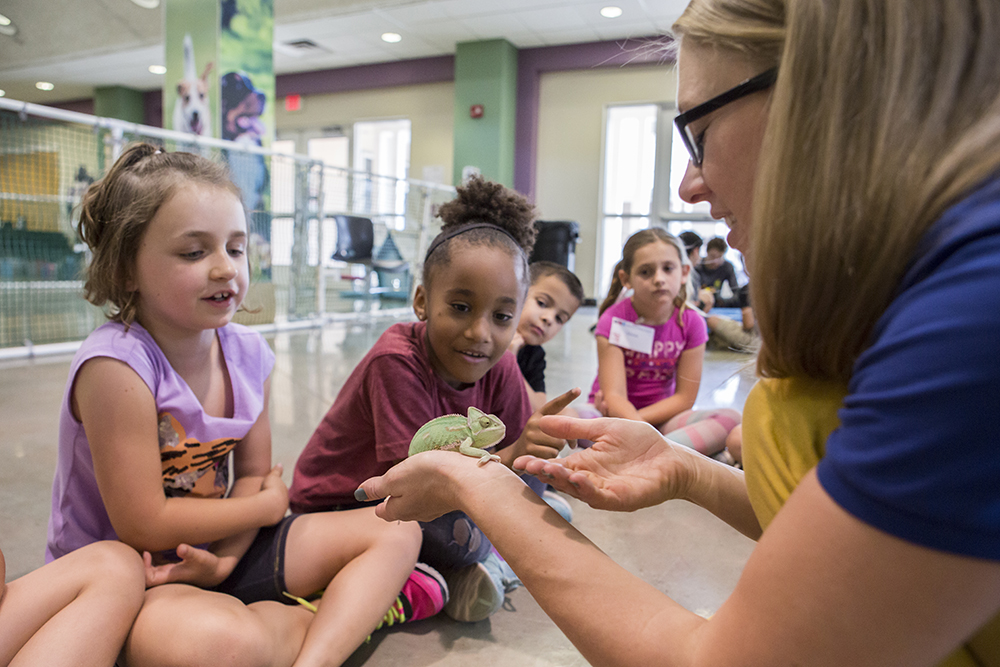
Join Us for Your Next Class Field Trip
Plan your next field trip to one of our two campuses and your students will get a behind-the-scenes look at how we rescue, care for and adopt out animals in need. After the exciting tour, your students will love a customized, hands-on learning activity that fits your current curriculum. Add on Reading Fur Fun—a great way for students to build reading skills and give our pets some fun attention, too.
Animal Teachers
-
![Image of Leonardo and Donatello]() Leonardo and DonatelloSpecies: African Sulcata Tortoises
Leonardo and DonatelloSpecies: African Sulcata Tortoises -
Leonardo and Donatello
Leonardo and Donatello came to the Arizona Humane Society from the Phoenix Herpetological Sanctuary. They’re staying with us as fosters while they continue to grow into the 200+ pound tortoises that they eventually will be. They spend a lot of their time eating (their favorite foods are lettuce and bell pepper) and learning the necessary skills to survive as adult tortoises—but they love to come out and teach people all about tortoises like them!
-
![Image of Cornflake]() CornflakeSpecies: Corn Snake
CornflakeSpecies: Corn Snake -
Cornflake
Diet: Carnivore (rodents, small lizards, and frogs)
Cornflake the corn snake is a goofy guy who loves nothing more than hamming it up in front of an audience. His bright colors, good size, and outgoing nature make him an instant student favorite!
Corn snakes, like all snakes, play an important ecological role in their environment and should be respected for that, rather than feared or harassed. They help maintain the balance of nature by being both predator and prey, and are among those snakes most often considered helpful to humans because they hunt rodents. They likely got their name from the resemblance of its belly markings to kernels of maize or Indian corn.
-
![Image of Leche]() LecheSpecies: Milksnake
LecheSpecies: Milksnake -
Leche
Diet: Carnivore (rodents, birds, lizards, and other snakes)
Currently the tiniest snake in our team of animal teachers, Leche doesn’t let his size affect his ability to liven up a program! His vibrant colors and fast movements keep the energy up in the classroom and really seem to captive the audience’s attention.
Milksnakes have similar coloration and pattern to venomous coral snakes, making them easy to confuse. By closely mimicking the bright colors of coral snakes, the milksnake scares away potential predators that may think they are also venomous. Milksnakes are also a type of kingsnake. The “king” in their name refers to their ability to eat other snakes, even venomous ones!
-
![Image of Berry]() BerrySpecies: Blue-Tongued Skink
BerrySpecies: Blue-Tongued Skink -
Berry
Diet: Omnivore (greens, fruits, and insects)
Berry the blue-tongued skink is a true joy for us to have as an “animal teacher.” He is incredibly social and will actively seek attention from anyone who will give it to him, especially if he thinks you may have his favorite food—berries! Our team will often take a little extra time when it comes to feeding Berry as he doesn’t see very well out of one of his eyes, and often needs some extra assistance to catch all of his insect entrée.
-
![Image of Dusk and Dawn]() Dusk and DawnSpecies: Ferret
Dusk and DawnSpecies: Ferret -
Dusk and Dawn
Dusk and Dawn are an un-ferretable duo that is always eager to help our education staff teach the Valley’s youth about critters. Dawn is known for being adorably affectionate and always seeks attention from her human peers. She’s almost too smart for her own good, though, as she’s become quite a wiggly escape artist. Dusk, on the other hand, is the troublemaker of the two. You can count on him to bring the energy, especially when he gets to play with his behavioral enrichment toys.
-
![Image of Biggie and the Gang]() Biggie and the GangSpecies: Madagascar Hissing Cockroaches
Biggie and the GangSpecies: Madagascar Hissing Cockroaches -
Biggie and the Gang
Diet: Detritivore (decaying fruit, vegetables, and occasionally other insects)
Biggie and his team of insect educators are true experts at changing the minds of entomophobes (people with a fear of bugs). They may look like “just a bug,” but biggie and the gang will tell you they aren’t your ordinary arthropod! In fact, they are one of the cleanest animals on the planet!
For humans, 99% of all roach species, including hissing roaches, are beneficial to our environment, and are invaluable in recycling a large majority of Earth’s dead or decaying plant matter. For example, tropical forests in Madagascar are often called “green deserts” because their soils are poor in nutrients. The forest vegetation is lush, but it has survived only through ingenious life-support systems. Cockroaches are one of the building blocks of these systems, breaking down plant matter into nutrient rich fertilizer. Without these incredible critters, dead and decaying vegetation would smother tropical forests.
-
![Image of Charity]() CharitySpecies: Domestic Rabbit
CharitySpecies: Domestic Rabbit -
Charity
Diet: Herbivore (hay, pellets, dark leafy greens, veggies, and the occasional piece of fruit)
Charity and 165 other rabbits were rescued from horrific conditions by AHS’ Emergency Animal Medical TechniciansTM and Animal Cruelty Investigation Team along with the Gilbert Police Department in August of 2019. Members of our Education and Outreach team were on the scene to assist with animal handling when they met Charity and her furry friends. Charity’s sociable nature made her an instant great fit in the role of “animal teacher.”
Now a permanent member of our staff with a forever home, Charity has the opportunity to educate thousands of Valley youth on her story and the lifesaving work we do for others like her at AHS.
She loves greens (especially broccoli and romaine lettuce), snuggling up with people, and getting to free roam in our offices on a regular basis.
-
![Image of Walnut and Grape]() Walnut and GrapeSpecies: Sonoran Desert Toads
Walnut and GrapeSpecies: Sonoran Desert Toads -
Walnut and Grape
These two clumsy ladies are the slimiest of our Animal Teachers! Why “Walnut” and “Grape”? Walnuts and grapes are very toxic to dogs—and so are these toads! They secrete a toxin through their skin that can be extremely dangerous for our canine friends. Luckily, these two are happy to spend their days blissfully soaking in their water dish or huddled on top of each other while basking under their UVB lights.
-
![Image of Jay-Z and Beyoncé]() Jay-Z and BeyoncéSpecies: Woodhouse Toads
Jay-Z and BeyoncéSpecies: Woodhouse Toads -
Jay-Z and Beyoncé
These two lovebirds are the most voracious eaters of our Animal Teachers. Crickets don’t stand a chance around feeding time with these toads! When they aren’t eating, they can often be found hiding in their burrow or even singing when it gets a bit rainy outside.
-
![Image of Thor]() ThorSpecies: Bearded Dragon
ThorSpecies: Bearded Dragon -
Thor
Thor always brings the thunder when it comes to stealing everyone’s hearts! He has always been a big fan of people, but not so much of other bearded dragons. He joined our Animal Teacher team so that he could be the star of his own show here with us, and he can often be found people watching from his log and waving at them as they walk by.
-
![Image of Timothy and Pepper]() Timothy and PepperSpecies: Guinea Pigs
Timothy and PepperSpecies: Guinea Pigs -
Timothy and Pepper
Timothy and Pepper love food, and they will let you know it! They came to us happy and healthy from a home that just couldn’t care for them anymore, and when our education staff met them, they instantly fell in love. Now, these little guinea pigs spend most of their time eating, sleeping and playing together. And when it’s mealtime, they love to squeak, chirp, screech and yell at the staff to let them know just how ready for food they are!


